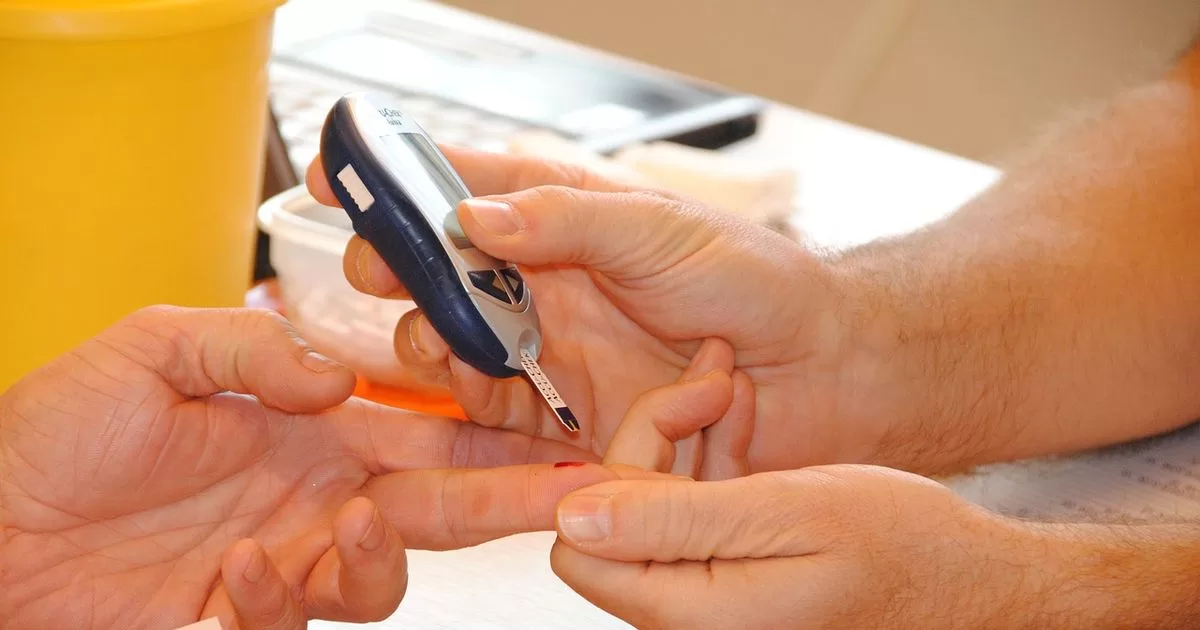MIAMI.- A drug that has long been used to treat rheumatoid arthritis can also suppress the progress of the Diabetes type 1according to the results of a clinical trial developed by a group of Australian researchers.
Its about baricitinib (Olumiant)a medication that appears to help newly diagnosed patients with type 1 diabetes safely and effectively preserve their natural ability to produce insulin and slow the progression of the disease.
Baricitinib is used to reduce pain, stiffness, and inflammation in adults with rheumatoid arthritis and helps slow the progression of bone and joint damage. It is also used to treat COVID-19.
Type 1 diabetes occurs when the body’s immune system mistakenly attacks the pancreatic beta cells that produce insulin. This type of diabetes comprises approximately 5% of all cases of this disease, which was fatal until more than 100 years ago when insulin was discovered.
“Until now, people with type 1 diabetes have relied on insulin administered through an injection or infusion pump,” the experts highlighted in the report.
This research promises to be the first disease-modifying treatment for type 1 diabetes that can be administered in tablet form.
The team of scientists from St Vincent Medical Research Institute (IVS) in Melbourne, Australia tested baricitinib in a small group of 91 people, ages 10 to 30, newly diagnosed with type 1 diabetes within 100 days before participating in the evaluation.
Patients were randomly assigned to one of two groups: 60 were given baricitinib, while the other 31 were given a dummy placebo pill. Specialists tracked their blood sugar levels and insulin production for a year. Neither the patients nor the researchers knew which patients were taking the drug or a placebo.
Findings
The study, published in the medical journal New England Journal of Medicine showed that treatment with this drug reduces the immune response responsible for the destruction of pancreatic beta cells and acts by blocking an enzyme linked to the regulation of the immune system and inflammation.
People with type 1 diabetes who were given the drug during the research needed less insulin for treatment.
As for blood sugar (glucose) control, they said baricitinib improved blood sugar measures assessed with the use of continuous glucose monitoring.
“We show that Baricitinib is safe and effective in slowing the progression of type 1 diabetes in people who have recently been diagnosed,” said Professor Thomas Kay, who led the trial.
Early treatment
Regarding the side effects of the drug, they stated that “the frequency and severity of adverse events were similar in the two groups participating in the trial, and no serious adverse events were attributed to baricitinib or placebo.”
Although people with type 1 diabetes typically need to take insulin injections to live, this research found that if patients start oral medication early enough after diagnosis and continue, natural insulin production is maintained. So it is crucial to give the drug to patients in the early stages of disease progression.
“When type 1 diabetes is first diagnosed, there are still a substantial number of insulin-producing cells present. “That’s why we wanted to see if we could protect against further destruction of these cells by the immune system,” Kay said.
Hope in treatment
For her part, trial co-author Helen Thomas, also from IVS, mentioned that more studies like this may be needed, but they are hopeful that this treatment could be clinically available very soon.
Doctors said this would represent a big change in the way type 1 diabetes is treated, “we think it shows promise as a fundamental improvement in the ability to control the disease,” Thomas said.
Finally, they highlighted that this study funded by JDRF (formerly Juvenile Diabetes Research Foundation) is the first in humans focused on baricitinib for type 1 diabetes worldwide.
@Lydr05
Source: With information from the New England Journal of Medicine


